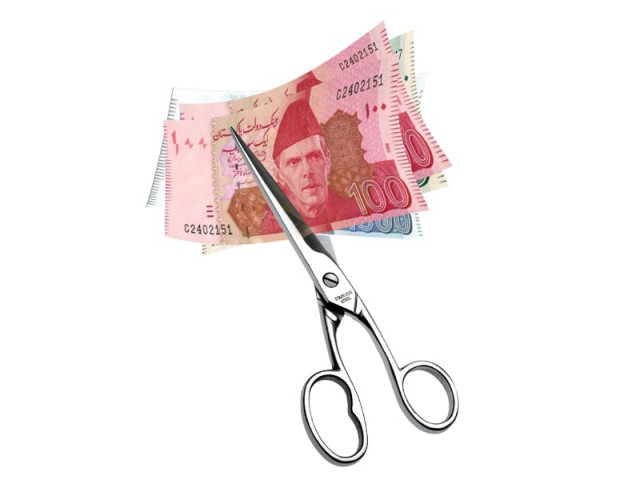Double-counting: GDP overestimated, may be slashed by 10%
Some goods and services were counted twice for last several years, sources say.

Double-counting: GDP overestimated, may be slashed by 10%
Pakistan’s economy was reported to stand at Rs21 trillion this year – except, it may not have been.
The size of the country’s economy will shrink by up to Rs2.5 trillion, or roughly 10%, after reports surfaced that the value of some goods and services were counted twice in calculation of the Gross Domestic Product (GDP) for the last several years.
The ‘correction’ has major implications, and places a question mark on authenticity of key economic indicators.
Major ‘correction’
The ‘double-counting’ surfaced after Pakistan Bureau of Statistics (PBS) rebased the economy, shifting the base year for calculations from fiscal 1999-00 to 2005-06.
The rebasing has reduced the size of the economy, earlier assessed to be Rs21 trillion, to less than Rs19 trillion, said an official of the finance ministry.
Last year’s GDP has also shrunk by up to Rs1.5 trillion, the official added.
While a top official of National Accounts called it a “mistake that has been corrected,” the error has sent the government’s economic managers back to the drawing board to rework all economic indicators not just for the next year, but for the last seven years at least.
The disclosure may also delay the announcement of next year’s budget as national accounts figures are used in the Economic Survey of Pakistan and the Annual Plan for the next fiscal.
The governing council of the PBS is meeting next week, chaired by the finance minister, to revisit the national accounts, according to Secretary Statistics Sohail Ahmad.
Impact of the error
How does this correction torpedo calculations for the current and projections for the next fiscal?
The budget deficit for the current fiscal, initially estimated to be around 6.5% of GDP, will soar to around 9% after the correction, said an official from the finance ministry.
Last year’s deficit, calculated to be 6.6%, will increase to about 7.2, the official said. The debt-to-GDP ratio for the current fiscal, estimated close to 60% of GDP, will rise to about 70% after the rebasing, he added.
Defending the ‘correction’
An official of National Accounts said the department “will not hide mistakes anymore just to appease the finance ministry.”
Some of the goods and services were counted twice, and that has been addressed, he said, citing the example of water supply which was listed under two separate heads.
“It is better to accept readjusted size with an implication of a couple of trillions instead of letting the GDP artificially increase for many more years,” he added.
Neither officials from the National Accounts, that works under the Statistics Division, nor the finance minister or secretary were available for comments, despite repeated attempt. Finance Minister Dr Hafeez Shaikh has already asked the Statistics Division to place its work for ‘review’ in front of the governing council of the PBS.
Possible ramifications
The error may invoke penalties from International Monetary Fund (IMF) since all key economic indicators – like the debt-to-GDP ratio, the budget deficit and economic growth – were reported on an inflated GDP size for at least ten years.
The country entered into three programmes with the IMF during that period. Though there is no official confirmation, Pakistan is also negotiating a fresh programme with the Fund.
Published in The Express Tribune, April 29th, 2012.



















COMMENTS
Comments are moderated and generally will be posted if they are on-topic and not abusive.
For more information, please see our Comments FAQ